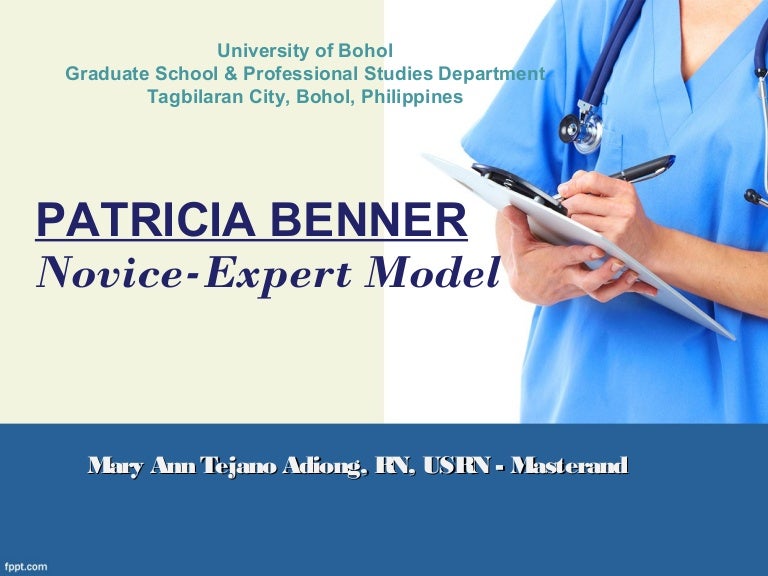Benner From Novice To Expert Pdf
Patricia Benner is a nursing theorist who first developed a model for the stages of clinical competence in her classic book 'From Novice to Expert: Excellence and Power in Clinical Nursing Practice'. Her model is one of the most useful frameworks for assessing nurses' needs at different stages of professional growth. She is the Chief Faculty Development Officer for Educating Nurses, the Director of the Carnegie Foundation for the Advancement of Teaching National Nursing Education and honorary fellow of the Royal College of Nursing.
Pdf to excel converter free download. His public debut has been opening a concert of the Italian pop-rock star Jovanotti (Lorenzo Cherubini). At first, the audience was astonished, but it has been a great success. He graduated in piano, in orchestration and in philosophy. He does not use improvisation. Afterwards, Jovanotti produced the first album of Giovanni Allevi, '13 Dita' (1997).
Was born in Hampton, Virginia, and received her bachelor's degree in Nursing from Pasadena College in 1964, and later a master's degree in Medical-Surgical Nursing from the University of California, Berkeley. After completing her doctorate in 1982, she became an Associate Professor in the Department of Physiological Nursing at the University of California, San Francisco. Benner is an internationally known lecturer and researcher on health, and her work has influenced areas of clinical practice as well as clinical ethics. This nursing theory proposes that expert nurses develop skills and understanding of patient care over time through a proper educational background as well as a multitude of experiences. Benner's theory is not focused on how to be a nurse, rather on how nurses acquire nursing knowledge - one could gain knowledge and skills ('knowing how'), without ever learning the theory ('knowing that'). She used the Dreyfus Model of Skill Acquisition as a foundation for her work. Active cline cccam italy. The Dreyfus model, described by brothers Stuart and Hubert Dreyfus, is a model based on observations of chess players, Air Force pilots, army commanders and tank drivers.
By Jaime Hallman Patricia Benner's From Novice to Expert Theory Novice Advanced Beginner Competent Proficient The novice has no experience in the situations in which they are expected to perform. Dr Patricia Benner introduced the concept that expert nurses develop skills and understanding of patient care over time through a sound educational base as well as a multitude of experiences.

Novice to Expert Benner’s model is predicated on the Dreyfus Model of Skill Acquisition. Hubert and Stuart Dreyfus developed their model based on their study of chess players, air force pilots, and army commanders and tank drivers.6 They contend that expertise is based on experiential (learnng through reflection on experiences) and situated.
Benner From Novice To Expert Pdf

From Novice To Expert Nursing
The Dreyfus brothers believed learning was experiential (learning through experience) as well as situation-based, and that a student had to pass through five very distinct stages in learning, from novice to expert. Benner found similar parallels in nursing, where improved practice depended on experience and science, and developing those skills was a long and progressive process. She found when nurses engaged in various situations, and learned from them, they developed 'skills of involvement' with patients and family. Her model has also been relevant for ethical development of nurses since perception of ethical issues is also dependent on the nurses' level of expertise. This model has been applied to several disciplines beyond clinical nursing, and understanding the five stages of clinical competence helps nurses support one another and appreciate that expertise in any field is a process learned over time. Benner's Stages of Clinical Competence Stage 1 Novice: This would be a nursing student in his or her first year of clinical education; behavior in the clinical setting is very limited and inflexible. Novices have a very limited ability to predict what might happen in a particular patient situation.